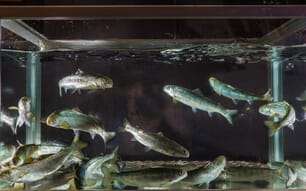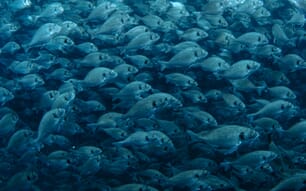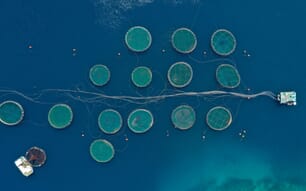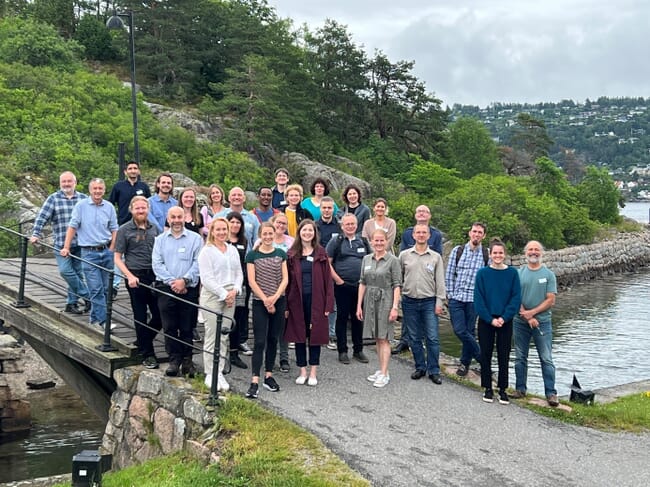
Results from the research could help improve the ability of whole stocks of farmed fish and shellfish to avoid and fight off infectious diseases and parasites © Nofima
Disease and parasitism cause major welfare, environmental and economic concerns for global aquaculture. A broad team of scientists has been assembled to examine the status and potential of technologies that exploit genetic variation in host resistance to tackle this problem.
In environments that contain high densities of animals or plants there is a high risk of contracting, propagating and spreading infectious disease. Diseases affecting fish and shellfish can lead to 100 percent mortality, necessitate complete destocking and/or severely affect fish welfare. Disease prevention and treatment are necessary, but current options are often costly, ineffective and can negatively impact animal welfare, local ecosystems and product quality. For example, biosecurity is particularly challenging when animals are farmed in an open water system, and logistical difficulties in handling makes it challenging to vaccinate and treat individual animals.
But is there a way that we could improve the ability of whole stocks of farmed fish and shellfish to avoid and fight off infectious diseases and parasites? To answer this question we need to study the improvement of host disease resistance which can be defined as the host’s ability to reduce pathogen invasion (ie limiting pathogen entry into target tissues and replication).
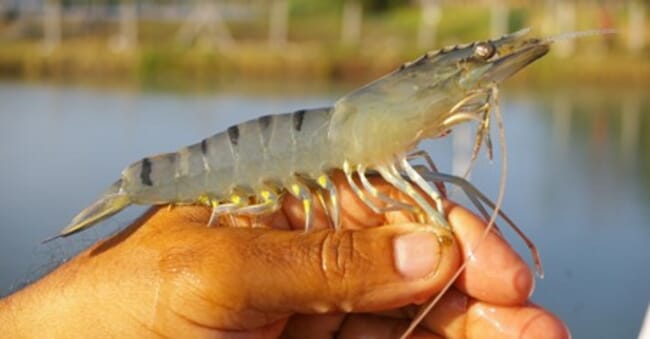
The team is reviewing genetic technologies that can be used to determine the mechanisms underlying host resistance to pathogens and parasites © Nicholas Robinson, Nofima
In a new paper published in the latest issue of Reviews in Aquaculture we argue that there is an urgent need to improve understanding of the genetic mechanisms involved, leading to the development of tools that can be applied to boost host resistance and reduce the disease burden. Together with other experts on fish and shellfish breeding, genetics, genomics, proteomics, disease biology, immunology, feed technology, epidemiology, biochemistry, welfare, vaccine discovery, behaviour and gene editing we draw on two pressing global disease problems as case studies – sea lice infestations in salmonids and white spot syndrome in shrimp.
We review how the latest genetic technologies can be capitalised upon to determine the mechanisms underlying host resistance to pathogens and parasites, and how the derived knowledge could be applied in ethical and efficient ways to boost disease resistance using selective breeding, gene editing, and/or with targeted feed treatments and vaccines.
Several new technologies available
Substantial research programmes are underway that aim to produce new knowledge that could be applied for boosting host resistance to eliminate or severely reduce infections by, for instance, sea lice in salmon and WSSV in shrimp.
These projects are utilising a suite of technologies that have been enabled by ultra-high throughput sequencing, such as single nuclei and spatial transcriptomics and single nucleotide polymorphism genome-wide association studies. Newly developed methodologies like in-vivo or in-vitro gene editing and functional testing hold great promise for helping to find and test genetic mechanisms affecting host resistance. These projects are also exploring the possibility of using genomic selection and gene editing with CRISPR-Cas9 to create host populations that will resist these diseases.
Considerations for implementation
The implementation of these technologies needs to be carefully considered. Practical methods that will allow easy adoption, implementation and dissemination by aquaculture sectors are needed. Population genetic variability needs to be maintained, inbreeding limited and possibilities for the genetic improvement of other important traits must be ensured. Ethical concerns, particularly about the use of gene editing, need to be openly discussed and debated in public arenas, and thorough testing and safeguards (eg sterilisation) are needed to ensure that there are no negative consequences for the wild populations of these species or for the broader ecosystem.
Expected spin-offs from this research
The application of new genomic technologies and methodologies is expected to generate knowledge about genes that trigger a more effective immune response in some species or lines; the effect that could be realised by editing these genes in more susceptible species or lines; potential lice attractants, repellents and assays; and the extent of additive genetic variation affecting the production and release of important immune factors and semiochemicals.
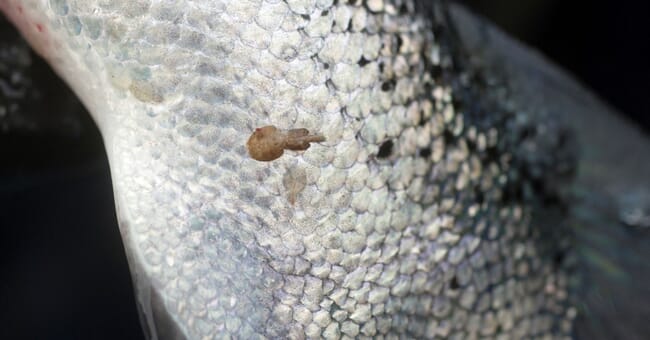
Results from the research could help develop of feed additives, gene edits, new vaccines and enhance genomic breeding value estimation that promotes host resistance © Nofima
Such knowledge could lead to the development of feed additives, gene edits, new vaccines and the enhancement of genomic breeding value estimation to promote host resistance. The epidemiological implications of these applications on the infectivity and virulence of aquatic diseases needs to be explored, and routines need to be devised to enhance the suppression of disease in the general aquaculture environment.
Such projects are ambitious in that it is hypothesised that specific semiochemical or immune pathways play major roles in differentiating disease-resistant from disease-susceptible hosts and that these differences are measurable, have a strong genetic basis, have implications for the epidemiology of infection and that genomic selection and/or gene editing approaches can be effectively and sustainably applied to reduce or eliminate the effect of disease on the host without counter-evolutionary responses by the infectious agent taking effect.
No quick fix, but strong long-term disease suppression potential
The long-term suppression of disease will only be realised through a collaborative and coordinated multi-disciplinary effort involving scientists working closely with the aquaculture industry and governments.
Such efforts are likely to significantly advance our understanding of host-parasite and host-disease interactions and mechanisms affecting resistance to disease and should result in significant economic impacts for aquaculture sectors, benefit the welfare of production animals and create ecosystem benefits for natural populations of these species.
Application of genetic technologies and approaches has potential to improve fundamental knowledge of mechanisms affecting genetic resistance and provide effective pathways for implementation that could lead to more resistant aquaculture stocks. Large collaborative research efforts provide the best chance of achieving such goals. Success applying these genetic technologies to combat infectious disease has the potential to transform global aquaculture by greatly improving animal welfare and the sustainability of production.

